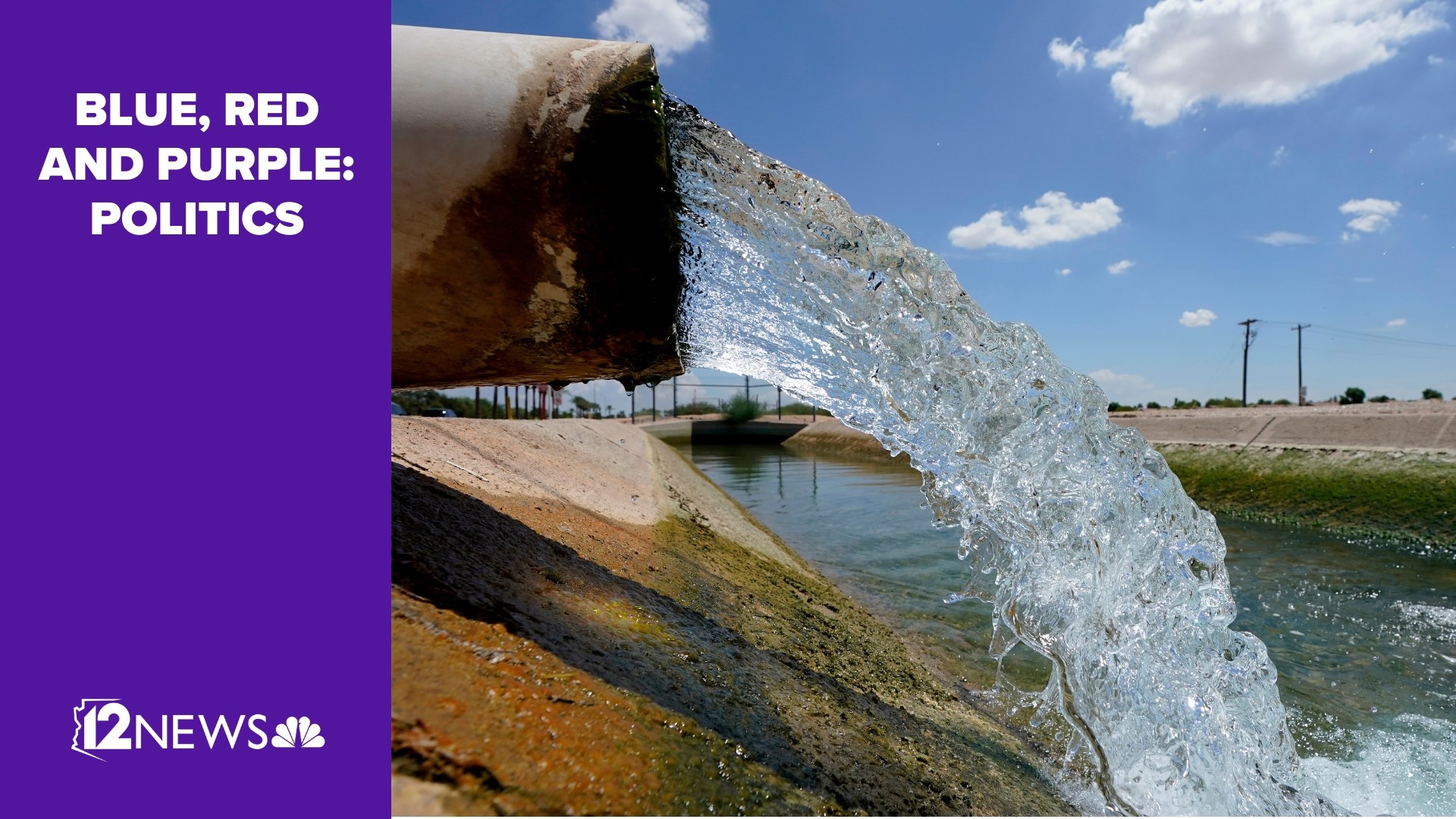PHOENIX — De-salting the ocean, forcing clouds to snow, or a states-long pipeline from the Mississippi River won't create a big enough "new bucket" of water to tackle the root cause of the Southwest's worsening drought, experts said.
Technologists' dreams were dashed Monday when Arizona's top water officials gathered at Phoenix's Burton Barr Library for a town hall symposium on the water crisis.
There, experts advocated for addressing the unsustainable ways Arizonans use water, rather than calling for new projects that would take billions of dollars and years to complete.
Here are some of the highlights:
Phoenix may have to stop its most sustainable water practice: storing water in underground aquifers
The worsening megadrought will turn conservation from a nicety into a necessity.
Phoenix's most popular, and arguably most effective, water conservation practice was storing the water it was allotted but didn't use in aquifers underground. The effectiveness of the practice has led some officials to claim the reserves are what makes the water crisis manageable in Arizona.
That practice may soon be forced to stop.
"I think cities in the immediate future are going to have to stop storing water," said President of the Central Arizona Water Conservation District Terry Goddard.
"They can get water off the Colorado River for their immediate needs, but the other basin states literally are in anguish about the fact that cities like Tucson, Phoenix and others are taking more water than they're using and putting it underground... To continue to do that is a poke in the eye to other folks who need water from the river."
Changing Arizona's water habits was the shared theme at the town hall as practices long believed to be justifiable are now seen as unsustainable.
Because groundwater reserves are becoming less of a guarantee, large water users will have to prove whether they are doing everything in their power to conserve, or whether they're wasting the precious resource.
"When we look at a new employment or economic opportunity, they ought to be rated on a scale of how conserving of water they are. That doesn't exist right now, and I think it has to in the future."
PREVIOUS COVERAGE: Future water cuts are expected to hit the Colorado River. Here's how Arizona is responding
Another "big project" isn't going to save the next century of Arizona's water
Arizona has long been a leader in water management. Projects dating back to the early 1900s, including the Salt River Project and the Central Arizona Project, show that we have recognized how important reliable water is to desert dwellers.
The panel revealed that experts don't see another project coming to save us from the ongoing megadrought.
"There's a tendency because of [past successful projects] to think that there's another big project out there, there's another SRP or CAP that will save us in the next century. I really don't think there is," Goddard said.
Water augmentation, or the process of finding, adding or creating new sources of water, has been the general focus among state lawmakers in addressing the Colorado River's dwindling water levels. However, experts agreed that augmentation should come secondary to adjusting how we use water.
"Most of what we need to do... is not really augmentation, but is making different kinds of choices about how water is used," said Grady Gammage Jr., Senior Research Fellow at the Kyl Center for Water Policy.
Gammage considers desalination, or the process of making ocean water drinkable for humans, the most likely source of augmentation, but that's still decades away and would cost billions. He also said cloud seeding could have a lot of unattended consequences and piping Mississippi River water to Arizona seems less feasible now that the Mississippi River is also seeing significantly low water levels.
Arizona wouldn't continue to farm alfalfa if it meant cities run dry
The Bureau of Reclamation, earlier this year, told the states along the Colorado River they need to figure out how to cut an additional two to four million acre-feet of water in order to keep the river flowing.
If the river's water stopped going to every city in Arizona, it wouldn't nearly be enough to meet those cuts, multiple experts on the panel said.
Agriculture uses around 70% of the state's total allocation of Colorado River water. If farmers don't cooperate with Arizona's other water users, there's no hope of meeting the cuts.
"I don't think we can, with equanimity, face a future that says we will continue to farm alfalfa and not provide water for the cities for health and safety," Goddard said. "Phoenix won't stop its whole operation, but a farm will, if in fact the worst happens and the Colorado River ceases to flow. I think there's a lack of understanding that is in fact the reality that we're looking at here."
Agriculture will have to be at the table with cities and tribes when further water cuts come down the line, but the experts also said this doesn't absolve city residents from conserving their water.
"We're in an all-hands-on-deck situation," said Kyl Center for Water Policy Director Sarah Porter. "We don't get a pass from conserving because we live in cities and cities use a smaller proportion of water than agriculture. ... We need to permanently reduce the amount of water that we're using, especially outside."
Water Wars
Water levels are dwindling across the Southwest as the megadrought continues. Here's how Arizona and local communities are being affected.

